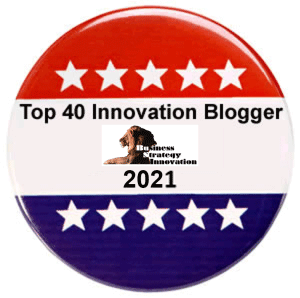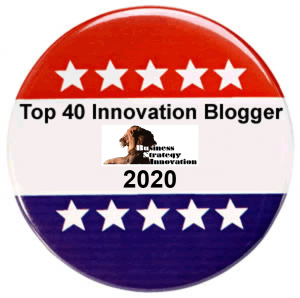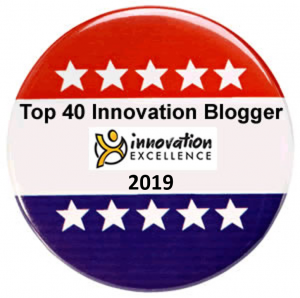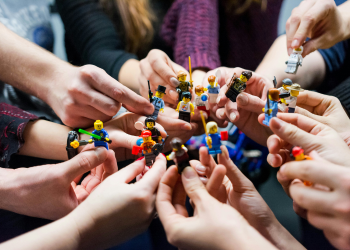A recent article in Forbes Magazine stated that “research scientists have long said every thought that enters the mind eventually finds a place in the body where it bears the burden”. The current amount of disruption is causing a significant of stress, fear, and anxiety for all of us, yet panic and worry will not enable us to develop the coping mechanisms required to surmount the range of personal, business, and civic challenges confronting us all globally. Panic and worry paradoxically add another layer of stress that potentially compromises the immune system and makes us even more vulnerable to the virus and other illnesses. Which means that controlling our perspectives by managing and shifting a breakthrough mindset during this crisis, and beyond it, to make the future happen, is everything.
This is because our mindset represents our perspective and imparts our way of experiencing, interpreting, and making meaning of the current disrupted and chaotic world, that we are all experiencing with the COVID-19 pandemic crisis. In fact, our mindset characterizes who we are as individuals because it draws upon our underlying values, beliefs, emotions, experiences, and thinking preference’s that influence how we and others engage with the world around us.
Controlling our perspective, by managing and shifting a breakthrough mindset, is the most powerful thing we can control in a situation that is beyond our control.
This is because a mindset is both a “mirror” reflecting back what we believe about ourselves as well as a “window” in that they influence what we pay attention to in our external world.
Mindsets are largely unconscious
Mindsets usually operate below our levels of awareness and influence how we go about choosing what is important and meaningful in our daily living. They influence how we interact with others as well as how we go about problem-solving, decision making, and adapting to situations and challenges we face at home and at work each and every day.
Importantly, mindsets are comprised of three interrelated activities of mind: intellective (thinking), affective (feeling), and volitional (choosing). How we think and how we feel about a person, situation, or challenge strongly influences the choices that we make. The choices that we make will in turn influence the actions that we eventually take, making us less vulnerable, emotionally, cognitively, and physically, to the forces surrounding and impacting us.
Taking responsibility for controlling our perspective by managing and shifting a breakthrough mindset, is the key, most profound, and impactful capability to develop, now and in the future.
Certainty is an illusion
In addition to being physically isolated and washing our hands, we need to cleanse our minds to offset any catastrophic thinking that unconsciously arises when we have to struggle with change, and when dealing with uncertainty, because we, in reality, we have no knowability. This is because one of the biggest issues that most of us struggle with when it comes to turbulence and exponential change is, dealing with uncertainty.
Because there is no certainty about what will happen during this time of great change, some of us are unconsciously trying to control uncontrollable events.
Some of us may even be simply shutting down, feeling helpless and hopeless, resulting in defensiveness and disempowerment, denial, justification, and avoidance of responsibility.
Alternately, our coping mechanisms, and default patterns are taking some of us back to the realm of unconscious deterministic thinking, where we try to analyze, quantify, forecast, and PUSH predictable results and business outcomes.
According to a recent article, “The Illusion Of Certainty” in Spectator Magazine, Rory Sutherland explains why this approach does not work:
“The reason is that both bureaucrats and business people are heavily attracted to the illusion of certainty. Standard cost-cutting ‘efficiencies’ can usually be ‘proven’ to work in advance; more interesting lines of inquiry come with career-threatening unknowability”.
He goes on to explain that: “this pretense of certainty is that cost-savings are more easily quantified than potential gains — so business and government are increasingly geared towards providing people with more, poorer things at an ever-lower price. Yet much evidence suggests that people like fewer, better things at a slightly higher price.
Developing a breakthrough mindset
We need to make the future we want to have, by managing and shifting a breakthrough mindset that embraces connectedness, wonder, imagination, curiosity, creativity, courage, and confidence to step up and stand in an unknown and desirable future.
To emerge and PULL the present from our current reality toward a future of our own design.
Backcast and don’t forecast
In “How to build a breakthrough” Mike Maples Junior, describes backcasting as the opposite of forecasting, where the goal is to emerge insights about the future that are non-consensus, and for the good of the whole.
By letting go of past and present assumptions and playing in the space of what might be possible, plausible and preposterous, by looking for the range of existing exponential inflections, cracks, openings to emerge massive insights, that power massive breakthroughs.
In ImagineNation’s innovation coaching programs we teach people how to be fully connected, and be present to themselves, to others and to the whole system by controlling their perspective to:
- Embrace a breakthrough mindset that involves emptying our minds, not knowing, and willingly unlearning what has been successful in the past.
- Adopt emergent, divergent, and convergent thinking practices, enabling sensing and seeing the range of inflection points.
- Practice mindful attention to playfully wonder and experiment, listen, inquire, debate to emerge insights towards creating a passionately purposeful, plausible, and sometimes preposterous future.
Experimenting with generative questions
In ImagineNation’s online innovation leadership learning programs, we support people to manage their perspective and shift toward a breakthrough mindset, by coaching them to experiment with, and master asking challenging and provocative generative questions.
Here are some that may be useful to experiment with as we transition through the COVID-10 crisis for practicing managing and shifting a breakthrough mindset, now with your team.
To collect and contrast, contrary multiple insights to transition through and backcast a surprising and innovative post COVID-19 future for your organisation:
- What are some of our assumptions about the current state of uncertainty?
- What if some of those assumptions are not true?
- What is less likely to happen in our business environment?
- What might be more likely to happen in our business environment?
- What can we do to find out more about the range of possible inflection points occurring now in our business environment?
- What might be some of the inflection points emerging as a result of the COVID-19 crisis?
- What if we play with one of those inflection points? What might be possible?
- What might be some of the best possible outcomes that could realistically happen?
- What then, is the kind of future we want to have for our team and organisation?
So, what can you do to keep your mind, and body, in check?
Make sure to be intentional about controlling your perspective, and take the time and space to cautiously retreat, reflect, allow, dwell upon, and acknowledge your thoughts and feelings to be fully present to control your perspective.
Courageously and compassionately shift your attention towards managing and shifting a breakthrough mindset that envisions the very best.
Confidently, step up and move towards collaboratively co-creating, an exponentially different, kinder, equitable, and sustainable future that helps surmount the range of personal, business, and civic challenges confronting us all globally.
Join our Special Edition Mindset Matters Free Webinar Series with Dr. Brett Richards, from Connective Intelligence, Canada.
Thursday, May 14th Mindset Matters to Adapt & Transform AEST 10:30-11:15am.
Thursday, May 21st Mindset Matters to Lead Through Disruption AEST 10:30-11:15 am.
Thursday, May 28th Mindset Matters to Drive Organizational Transformation AEST 10:30-11:15 am.











